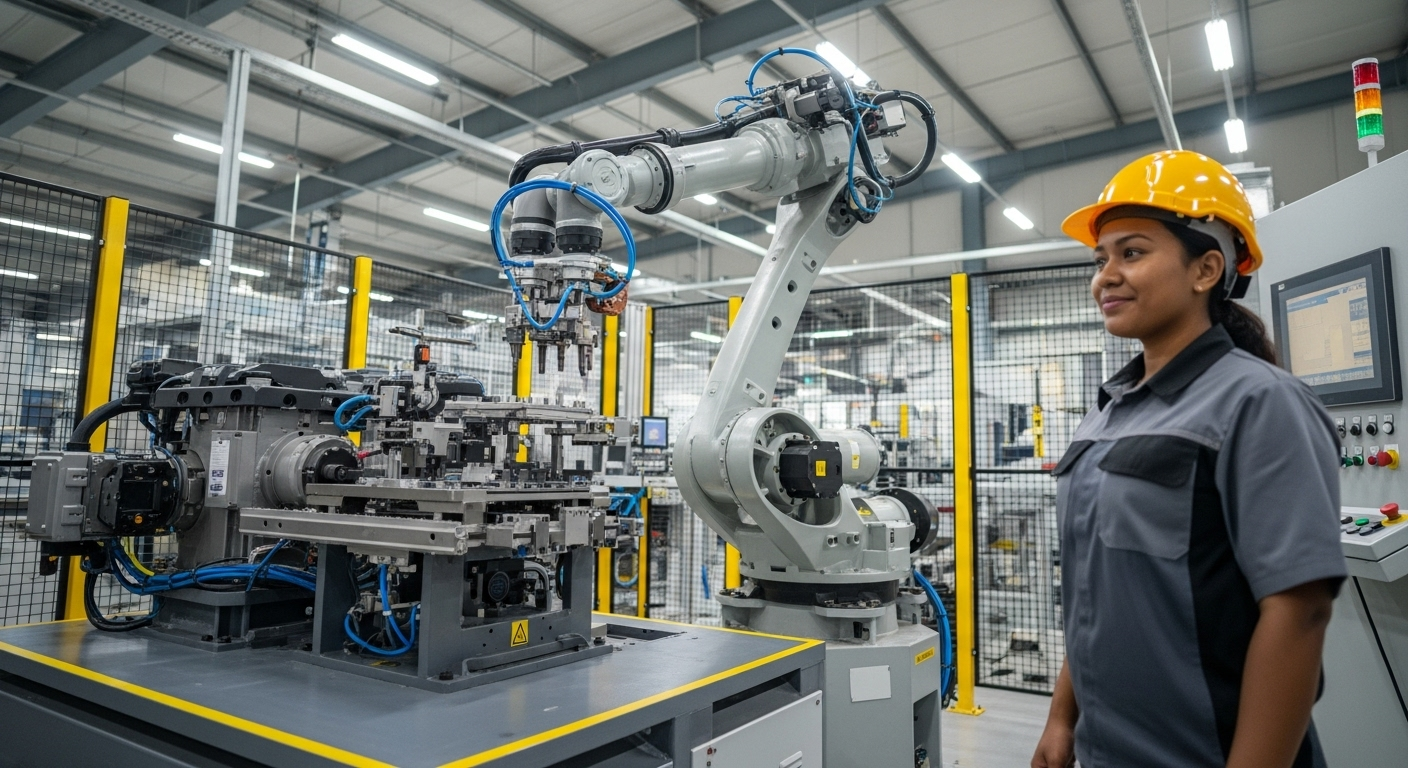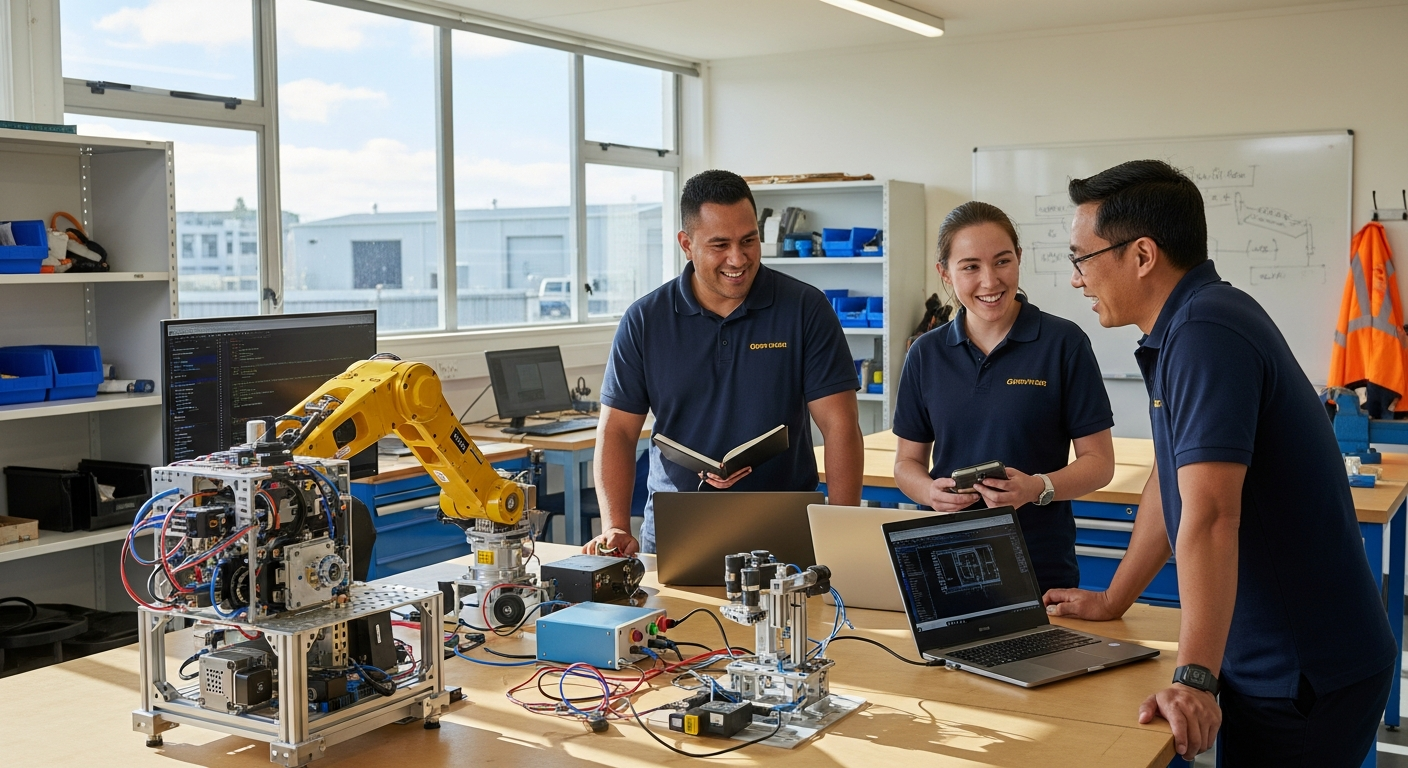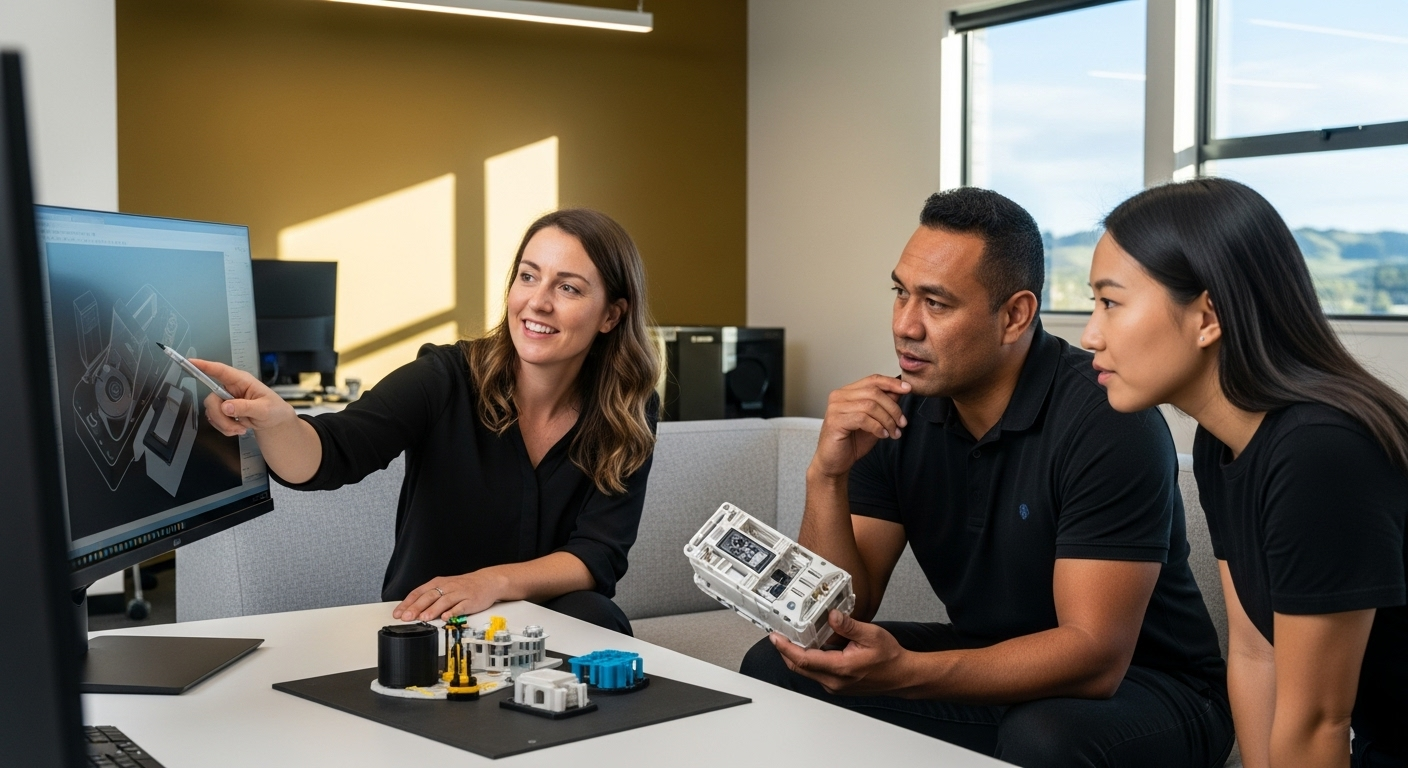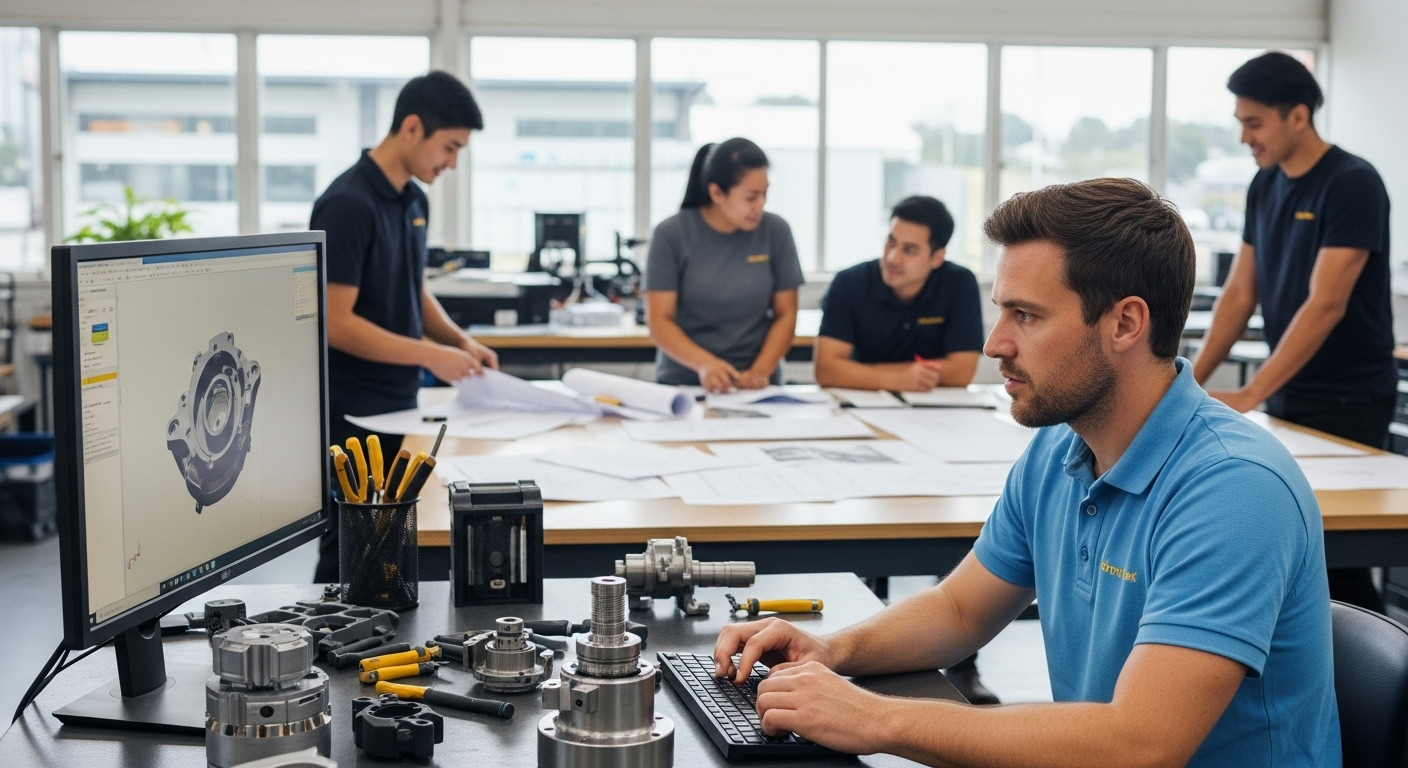Revolutionising Production: Core Principles of Modern Manufacturing Engineering
The Manufacturing Engineer: Powering New Zealand's Industrial Future
Key Takeaways
- New Zealand's manufacturing sector is a vital part of our economy, contributing significantly to GDP and exports, but faces challenges in technology adoption.
- Modern manufacturing engineering is crucial for driving productivity, ensuring compliance, and maintaining a competitive edge in a "three-speed economy."
- Advanced technologies like Industry 4.0, automation, and lean manufacturing are essential for improving efficiency and product quality.
- Specialised engineering expertise, particularly in design verification and certification, is key to navigating New Zealand's unique regulatory landscape.
- Partnering with experienced engineering consultants can help businesses bridge skill gaps and accelerate innovation from concept to full-scale production.
Here in New Zealand, our manufacturing sector is a cornerstone of the economy. It accounts for a significant 10% of our GDP, drives 60% of our exports, and employs a substantial 230,000 people. It’s also a key driver of innovation, contributing to approximately a quarter of all of New Zealand’s business-led research and development, as highlighted in a report by Aurecon Group. However, we're also operating in what we've observed as a "three-speed economy." Some businesses are thriving, embracing innovation and advanced technologies, while others struggle with outdated processes and a reluctance to adapt. This disparity is particularly evident when we look at technology adoption; New Zealand has a robot density of just 55 robots per 10,000 manufacturing workers, a stark contrast to Germany's 371 or South Korea's 934, according to Callaghan Innovation. This gap presents both a challenge and a significant opportunity for growth, and it's where the expertise of a manufacturing engineer becomes indispensable.
At Nexus, we've seen first-hand the impact that strategic mechanical engineering and process improvement can have on a business. Our goal is to guide New Zealand manufacturers through this evolving landscape, ensuring they can not only compete but excel on a global stage. We believe that understanding the core principles of modern manufacturing engineering is the first step towards unlocking that potential.

What Does a Manufacturing Engineer Do?
A manufacturing engineer is the architect of efficiency and innovation within a production environment. They are responsible for designing, optimising, and managing the entire manufacturing process, from raw materials to finished product. This involves a broad range of tasks, including selecting the right equipment, streamlining workflows, ensuring product quality, and reducing costs. In our experience, a good manufacturing engineer doesn't just solve problems; they anticipate them, implementing solutions that prevent issues before they arise.
The role often overlaps with that of an industrial engineer, who focuses more broadly on optimising complex processes, systems, and organisations. Both roles are critical for navigating the manufacturing process in New Zealand, ensuring that every stage, from concept to full-scale production, is as efficient and effective as possible. They are the driving force behind continuous improvement, constantly looking for ways to enhance productivity and maintain a competitive edge.
The Current State of NZ Manufacturing: Resilience and Opportunity
Despite global headwinds like inflation and supply chain disruptions, New Zealand's manufacturing sector has shown remarkable resilience. The NZManufacturer.co.nz reported that the sector's contribution to GDP was 11.5% in the 2023-2024 financial year, with total revenue of NZ$55.3 billion. We also saw a 2.1% improvement in labour productivity, which indicates increased efficiency through technological adoption in some areas.
However, this growth isn't uniform. The "three-speed economy" we mentioned earlier means that while record primary product exports are a major positive – for instance, New Zealand's goods exports reached a record $7.8 billion in April 2025, a 25% increase from April 2024, driven by strong global demand for primary products, as per the CECC – this hasn't translated into widespread investment across the entire sector. Many businesses are still grappling with skills shortages and the need for greater digital transformation.

Bridging the Gap: The Role of Advanced Technologies
For New Zealand manufacturers to truly thrive, embracing advanced technologies is no longer an option; it's a necessity. We're talking about concepts like Industry 4.0, which integrates smart manufacturing systems, automation, and data exchange. This includes technologies suchs as robotics, the Internet of Things (IoT), and additive manufacturing (3D printing).
Automation, for example, can dramatically increase production efficiency and consistency. Robotics can handle repetitive or hazardous tasks, freeing up human workers for more complex, value-added activities. Lean manufacturing principles focus on eliminating waste and optimising value, ensuring that every step in the production process contributes to the final product quality. These are not just buzzwords; they are practical tools that a skilled manufacturing engineer uses to transform a manufacturing system.
Ensuring Compliance and Quality Control
Beyond efficiency, compliance with local New Zealand requirements is paramount. This is where our expertise in design verification and preparation for certification becomes invaluable. We help businesses ensure their products and processes meet all necessary standards, reducing risks and avoiding costly delays. Quality control isn't just about catching defects; it's about building robust processes that prevent them from happening in the first place.
A manufacturing engineer plays a critical role in establishing and maintaining these quality management systems. They implement procedures for inspection, testing, and continuous improvement, ensuring that every product leaving the assembly line meets the highest standards. This focus on quality and compliance builds trust with customers and strengthens a brand's reputation, which is essential in both local and international markets.
The Manufacturing Journey: From Concept to Reality
The journey from a new product idea to a market-ready item is complex, involving many stages: concept development, mechanical design, prototyping, testing & iteration, and finally, full-scale production and launch. A manufacturing engineer is central to this entire process, ensuring manufacturability and efficiency at every step. They use tools like CAD (computer-aided design) software to design and refine products, ensuring that they can be produced effectively and economically.
In our experience, early involvement of engineering expertise can save significant time and money. For instance, considering the manufacturing process during the initial design phase can prevent costly redesigns later on. This holistic approach ensures that the product is not only innovative but also practical to produce, leading to better product quality and a smoother production process.
Opportunities in Manufacturing Engineering in New Zealand
The demand for skilled engineers in New Zealand is high. We need an additional 2,500 engineers annually, a point we've highlighted in our discussion on mechanical engineering in New Zealand. This creates significant opportunities for those looking to pursue an engineering career, particularly in the manufacturing sector.
Becoming a manufacturing engineer offers diverse career pathways. You could work as a process engineer, a production engineer, or even a production manager. The field requires a blend of technical skills, problem-solving abilities, and an understanding of business operations. A degree in manufacturing engineering or mechanical engineering provides a solid foundation, opening doors to roles in various industries, from food and beverage to medical devices and even aerospace components.
Partnering for Success
Many New Zealand businesses, especially small to medium-sized enterprises (SMEs), might not have the in-house expertise to fully embrace modern manufacturing principles or the latest technologies. This is where partnering with an experienced engineering consultancy becomes a strategic advantage. We provide the specialised knowledge and resources needed to implement advanced manufacturing practices, optimise existing systems, and ensure compliance.
We work with businesses to identify areas for improvement, introduce new technologies, and streamline their supply chain. Our team helps with everything from initial mechanical design and drafting services, allowing businesses to innovate and refine ideas in CAD before committing to expensive physical prototyping, to troubleshooting complex production issues. We aim to empower local manufacturers, helping them to increase productivity, improve product quality, and ultimately, grow their businesses in a competitive global market.
The journey to a more efficient, innovative, and compliant manufacturing operation can seem daunting, but you don't have to navigate it alone. With the right engineering partnership, New Zealand businesses can overcome current challenges and position themselves for a future of sustained growth and success. While specific project costs can vary widely depending on scope and complexity, the investment in expert engineering guidance invariably yields significant returns through improved efficiency and compliance.








